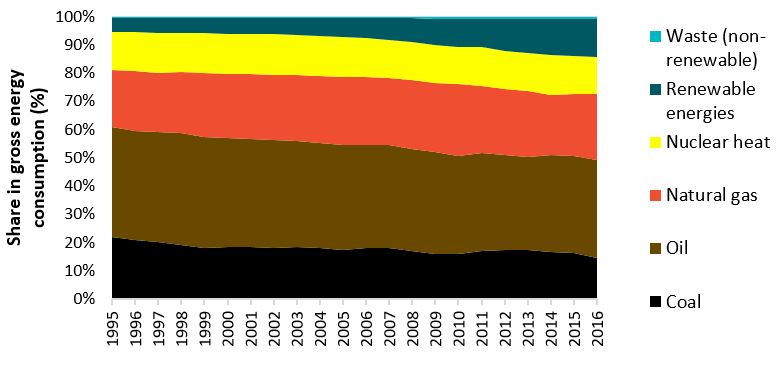- Client: European Environment Agency (EEA)
- Implementation period: October, 2017 - March, 2018 (Completed)
- Geographic coverage: Europe
- Theme: Energy
- Topic: Energy Policy Regulation and Markets
- Experts: Stephan Slingerland, Federica Gerber, Tycho Smit
What are the challenges for the energy transition in Europe and how can they be solved?
In this study conducted by Trinomics a macro-level analysis was done on the energy system in Europe, to serve as an input to the energy chapter of the State Of the Environment report (SOER) 2020. The study started by analysing the current structure of the European energy system and the challenges that the energy system ins currently facing. Next to that barriers for a low-carbon energy transition in Europe were analysed as well as solutions to overcome these barriers. Also, the report contained fice case studies that highlighted some specific dilemmas and challenges that need to be addressed during the energy transition.

The main findings of our study were the following:
- Although renewables have been growing substantially in the last decade, Europe is still heavily dependent on (largely imported) fossil fuels;
- The energy transition will generate an increased need for balancing of supply and demand in the electricity grid, which will require equal market access for different balancing options;
- The use of gas as a transition fuel should be considered carefully as it poses the risk of sustained import dependence and postponement of innovative change;
- Welfare impacts of the energy transition, which often go beyond energy poverty issues, should be accurately addressed to ensure a successful transition for society as a whole;
- Public resistance to low-carbon technology options needs to be better understood and addressed;
- Renewable energy deployment in the transport and heating & cooling sector is lagging behind the electricity sector and thus needs to be accelerated;
- Economic incentives need to be further reformed so that they are more in line with long-term environmental and climate objectives;
- Further harmonisation of national energy markets can contribute to rapid and more efficient transition;
- As Europe’s share in the total global energy use is declining, so to achieve the global goal of limiting climate change, it is essential that other continents also step up their efforts to curb their emissions and change their energy systems.